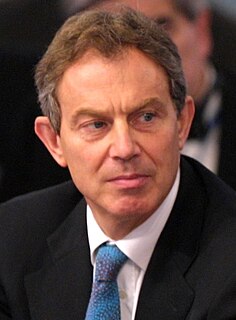
The 2001 United Kingdom general election was held on Thursday 7 June 2001, four years after the previous election on 1 May 1997, to elect 659 members to the House of Commons. The governing Labour Party was re-elected to serve a second term in government with another landslide victory, returning 412 members of Parliament versus 418 from the 1997 general election, a net loss of six seats, though with a significantly lower turnout than before—59.4%, compared to 71.3% at the previous election. Tony Blair went on to become the first Labour Prime Minister to serve two consecutive full terms in office. As Labour retained almost all of their seats won in the 1997 landslide victory, the media dubbed the 2001 election "the quiet landslide".

The United Kingdom is a unitary state with devolution that is governed within the framework of a parliamentary democracy under a constitutional monarchy in which the monarch, currently Queen Elizabeth II, is the head of state while the Prime Minister of the United Kingdom, currently Boris Johnson, is the head of government. Executive power is exercised by the British government, on behalf of and by the consent of the monarch, and the devolved governments of Scotland, Wales and Northern Ireland. Legislative power is vested in the two chambers of the Parliament of the United Kingdom, the House of Commons and the House of Lords, as well as in the Scottish and Welsh parliaments and the Northern Ireland Assembly. The judiciary is independent of the executive and the legislature. The highest court is the Supreme Court of the United Kingdom.

The 1997 United Kingdom general election was held on 1 May 1997. The incumbent governing Conservative Party led by Prime Minister John Major was defeated in a landslide by the Labour Party led by Tony Blair.

The 1992 United Kingdom general election was held on Thursday 9 April 1992, to elect 651 members to the House of Commons of the United Kingdom. The election resulted in the fourth consecutive victory for the Conservative Party since 1979 and would be the last time that the Conservatives would win an overall majority at a general election until 2015. This election result took many by surprise, as opinion polling leading up to the election day had shown the Labour Party, under leader Neil Kinnock, consistently, if narrowly, ahead.
The politics of Edinburgh are expressed in the deliberations and decisions of the City of Edinburgh Council, in elections to the council, the Scottish Parliament and the UK Parliament.
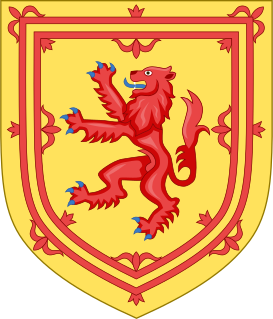
The politics of Scotland operate within the constitution of the United Kingdom, of which Scotland is a home nation. Scotland is a democracy, being represented in both the Scottish Parliament and the Parliament of the United Kingdom since the Scotland Act 1998. Most executive power is exercised by the Scottish Government, led by the First Minister of Scotland, the head of government in a multi-party system. The judiciary of Scotland, dealing with Scots law, is independent of the legislature and the executive. Scots law is primarily determined by the Scottish Parliament. The Scottish Government shares some executive powers with the Government of the United Kingdom's Scotland Office, a British government department led by the Secretary of State for Scotland.

The October 1974 United Kingdom general election took place on Thursday 10 October 1974 to elect 635 members of the British House of Commons. It was the second general election held that year, the first year that two general elections were held in the same year since 1910, and the first time that two general elections were held less than a year apart from each other since the 1923 and 1924 elections, which took place 10 months apart. The election resulted in the Labour Party led by Harold Wilson winning the narrowest majority recorded, 3 seats. This enabled the remainder of the Labour government, 1974–1979 to take place, which saw a gradual loss of its majority.

The first election to the devolved Scottish Parliament, to fill 129 seats, took place on 6 May 1999. Following the election, the Labour Party and the Liberal Democrats formed the Scottish Executive, with Labour Member of the Scottish Parliament (MSP) Donald Dewar becoming First Minister.

The 1959 United Kingdom general election was held on Thursday, 8 October 1959. It marked a third consecutive victory for the ruling Conservative Party, now led by Harold Macmillan. For the second time in a row, the Conservatives increased their overall majority in Parliament, this time to 100 seats, having gained 20 seats for a return of 365. The Labour Party, led by Hugh Gaitskell, lost 19 seats and returned 258. The Liberal Party, led by Jo Grimond, again returned only six MPs to the House of Commons, but managed to increase its overall share of the vote to 5.9%, compared to just 2.7% four years earlier.
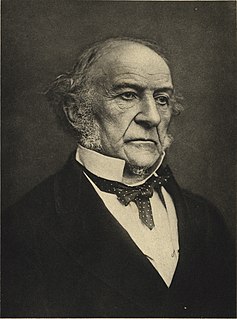
The 1885 United Kingdom general election was held from 24 November to 18 December 1885. This was the first general election after an extension of the franchise and redistribution of seats. For the first time a majority of adult males could vote and most constituencies by law returned a single member to Parliament fulfilling one of the ideals of Chartism to provide direct single-member, single-electorate accountability. It saw the Liberals, led by William Ewart Gladstone, win the most seats, but not an overall majority. As the Irish Nationalists held the balance of power between them and the Conservatives who sat with an increasing number of allied Unionist MPs, this exacerbated divisions within the Liberals over Irish Home Rule and led to a Liberal split and another general election the following year.

The Scottish referendum of 1979 was a post-legislative referendum to decide whether there was a sufficient support for a Scottish Assembly proposed in the Scotland Act 1978 among the Scottish electorate. This was an act to create a devolved deliberative assembly for Scotland. An amendment to the Act stipulated that it would be repealed if less than 40% of the total electorate voted "Yes" in the referendum. The result was that 51.6% supported the proposal, but with a turnout of 64%, which represented only 32.9% of the registered electorate. The Act was subsequently repealed. A second referendum to create a devolved legislature in Scotland was held in 1997 under a newly elected Labour government, which led to the enactment of the Scotland Act 1998 and the creation of a devolved Scottish Parliament in 1999.

There was a double by-election in Glasgow Anniesland in 2000.

Edinburgh North and Leith is a constituency of the House of Commons of the Parliament of the United Kingdom, first used in the 1997 general election. It elects one Member of Parliament (MP) by the first past the post system of election.

Scotland was a constituency of the European Parliament created in 1999. It elected between eight and six MEPs using the D'Hondt method of party-list proportional representation every 5 years from 1999 until 2020, when the constituency was abolished after the United Kingdom left the European Union on 31 January 2020.
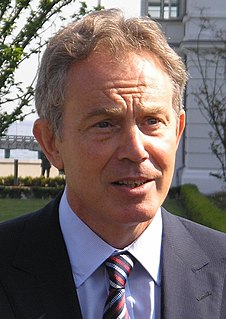
The 2005 United Kingdom general election was held on Thursday 5 May 2005, to elect 646 members to the House of Commons. The Labour Party, led by Tony Blair, won its third consecutive victory, with Blair becoming the only Labour leader besides Harold Wilson to form three majority governments. However, its majority fell to 66 seats compared to the 167-seat majority it had won four years before. This was the first time the Labour Party had won a third consecutive election, and remains the party's most recent general election victory.

The Scottish Conservatives, officially the Scottish Conservative & Unionist Party, is a centre-right political party in Scotland. It is the second-largest party in the Scottish Parliament and Scottish local government. The party has the second largest number of Scottish MPs in the House of Commons of the United Kingdom.

There are five types of elections in the United Kingdom: elections to the House of Commons of the United Kingdom, elections to devolved parliaments and assemblies, local elections, mayoral elections and Police and Crime Commissioner elections. Within each of those categories, there may also be by-elections. Elections are held on Election Day, which is conventionally a Thursday. Since the passing of the Fixed-term Parliaments Act 2011 for general elections, all five types of elections are held after fixed periods, though early elections to parliament and the devolved assemblies and parliaments can occur in certain situations. The five electoral systems used are: the single member plurality system (first-past-the-post), the multi-member plurality system, the single transferable vote, the additional member system and the supplementary vote.

These are the results of the 1997 United Kingdom general election in Scotland. The election was held on 1 May 1997 and all 72 seats in Scotland were contested.

1987 United Kingdom general election in Scotland These are the results of the 1992 United Kingdom general election in Scotland. The election was held on 9 April 1992 and all 72 seats in Scotland were contested. Two Scottish seats changed parties during the election; Aberdeen South and Kincardine and Deeside. Both seats were gained by the Conservatives. Kincardine and Deeside had been lost by the Conservatives to the Liberal Democrats in the last by-election of the parliament.
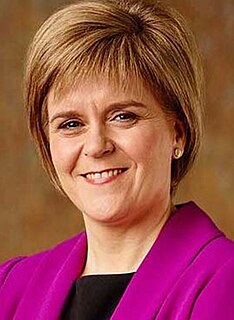
The 2017 United Kingdom general election in Scotland was held on Thursday 8 June 2017; all 59 seats were contested under the first-past-the-post electoral system.



















